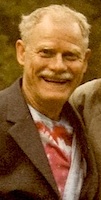
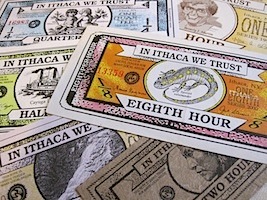
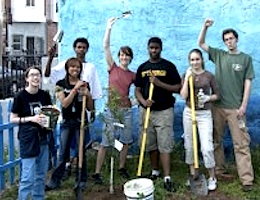

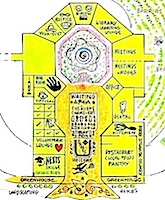


 |
 |
 |
 |
 |
  |
|
Philadelphia's Federal Reserve
Bank
Wonders How to Help Us by Paul Glover
THE FED should be a Broadway play. It has high drama-- the fate of trillions of dollars. It has violence-- the fate of billions of people. It has wit-- the banter of bureaucrats. And it has sex-- probably. This play rolled out at the "Reinventing Our Communities: Transforming our Economies" conference in Philadelphia (September 21-23). Every two years the Federal Reserve Board brings together professionals concerned about the gap between rich and poor. Three hundred sincere experts, principally bureaucrats, politicians and professors, spoke about measuring programs that reduce suffering, to better serve helpless neighborhoods. They are doing everything they are able, within the rules of finance and philanthropy, to lift the poorest from a pit so dismal that it threatens to sink us all. Not present in the room, though, were capitalists or the poor. Any group with significant power, like the FED, has critics. Realizing they are often regarded as the play's villain, FED representatives explained that they're not really America's top dog. Yet the FED controls the world's dollar supply and interest rates. They are themselves the tool of the largest banks, which are the tools of the largest businesses, which are the tools of stock market investors. And the goal of most investment is to win the biggest numbers of dollars, regardless what happens to communities or nature. There are therefore limits to discussion of economic transformation. So they spoke of adjustments, not revolutions. Some among the attendees have forged paths into realms of power after employment as nurses, teachers, or cashiers. José Quiñonez, for example, rose from poverty to start the Mission Asset Fund, providing over $5 million via lending circles. Many of the panelists, though, fledged from academia directly to policy and research, without having lived among the poor they affect. Patrick Harker, President of the Federal Reserve of Philadelphia, said, "I recognize that I live in a bubble. I don't experience the broad reality of life in America-- people who live paycheck to paycheck, relying on Payday loans." But he is clear that "social dysfunction is not economically productive." Theresa Singleton of the Philadelphia FED agreed, saying, "inclusion is vital for growth. It's not just moral but practical." And Dennis Lockhart, President of Atlanta FED, emphasized that "Growth of GDP is less important than growth of per capita GDP." However, capital markets currently manage and channel the poor within a financial system which cannot significantly advance them, because it must first satisfy developers and investors. Even so, participants spoke boldly about confronting poverty, declaring for example that "We must reduce the causes of suffering, not just the suffering" and " We must change the rules of the game." Lance Freeman, professor at Columbia University, said "Inclusive communities are more than affordable housing. It's easier to redevelop places than people." Lovely Warren, Mayor of Rochester, opposes "building programs, not people." Said Gabriela Ramos chief of staff for OECD, "we need to build cities, not just houses." Some attendees are more ready to trust the creativity, generosity, and intelligence of the poor. This would mean, among other things, that land values and success become defined not simply to profit insiders, developers, or politicians, but to liberate talent and restore dignity. Kasim Reed, Mayor of Atlanta, said, "Make sure residents are leading the charge, and give them the tools for transformation." Attendees were invited to "ask hard questions and not settle for easy answers." For the most part, though, conference proposals tread safer paths. Several prevailing assumptions seem to hobble inclusion and equity. Among these, foremost, is that most economic development pivots upon corporate need. And that education must emphasize STEM skills to serve major employers. That great social impact requires major capitalization. That corporations will retain principle control of land, law and money. That everyone should aspire to become at least middle class. That population growth is essential for economic growth, to enable more humans to buy more stuff. Conference interventions to reduce poverty focused on relevant workforce training, financial counseling, access to benefits, and promoting model employers. Notwithstanding the enthusiastic buzz, FED presidents are disturbed by
"lack of hope." Loretta Mester of the Cleveland FED lamented that
"there's no respect for facts, and distrust of institutions." The CEO
of Kaiser Permanente, Tyler Morris, noted that "many children born
today will live five years less than their parents." When the audience
was asked whether "things would get better," just two of us raised our
hands. |
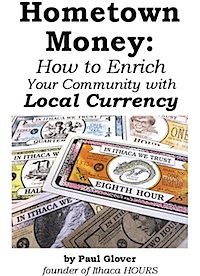 |
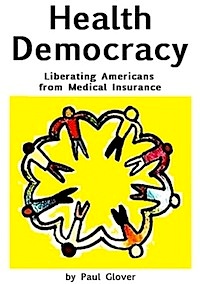 |
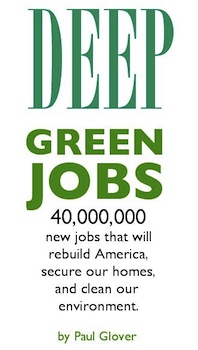 |
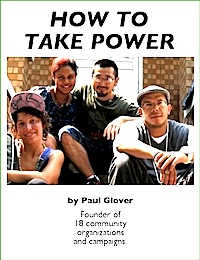 |
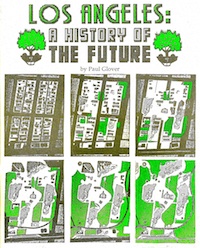 |